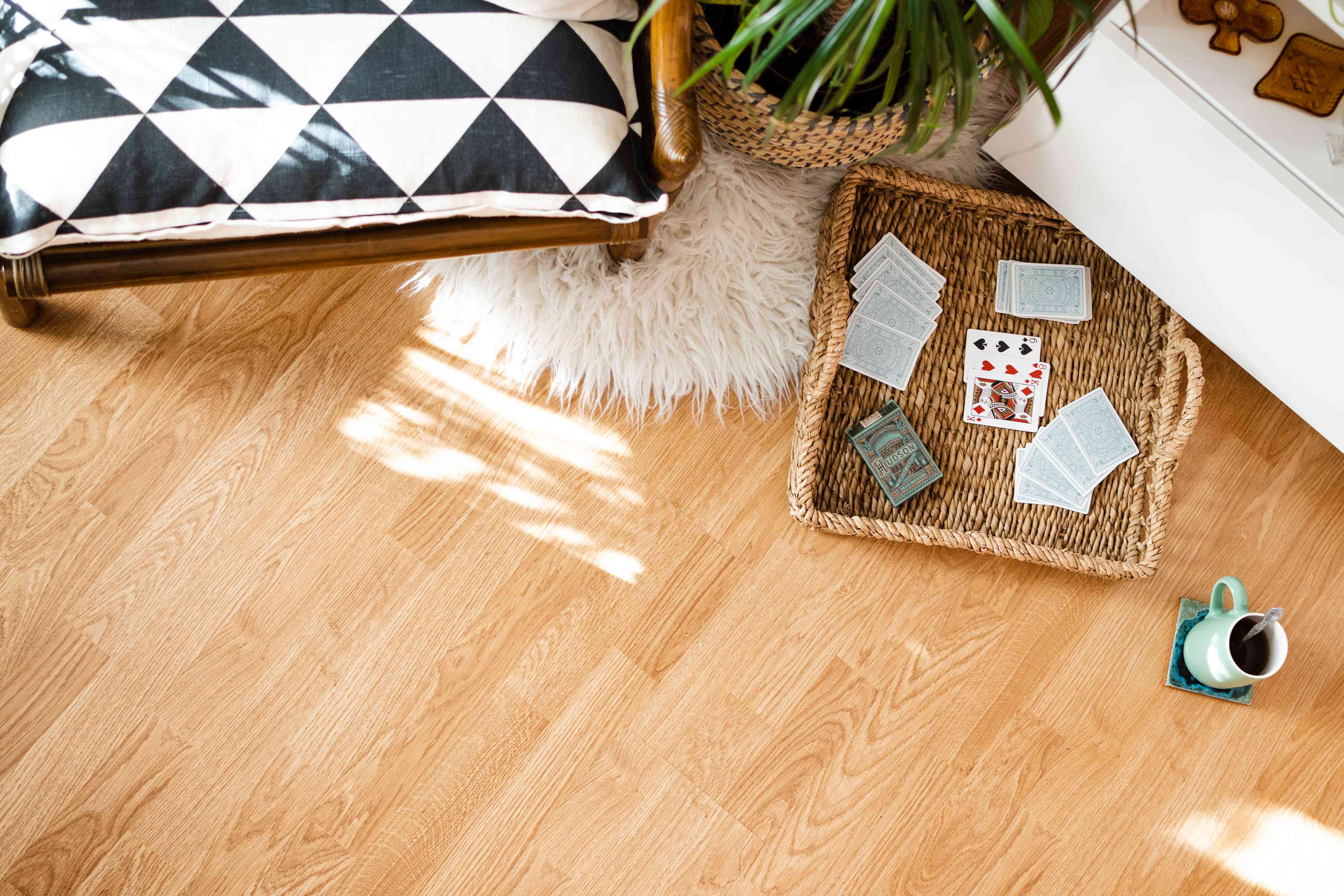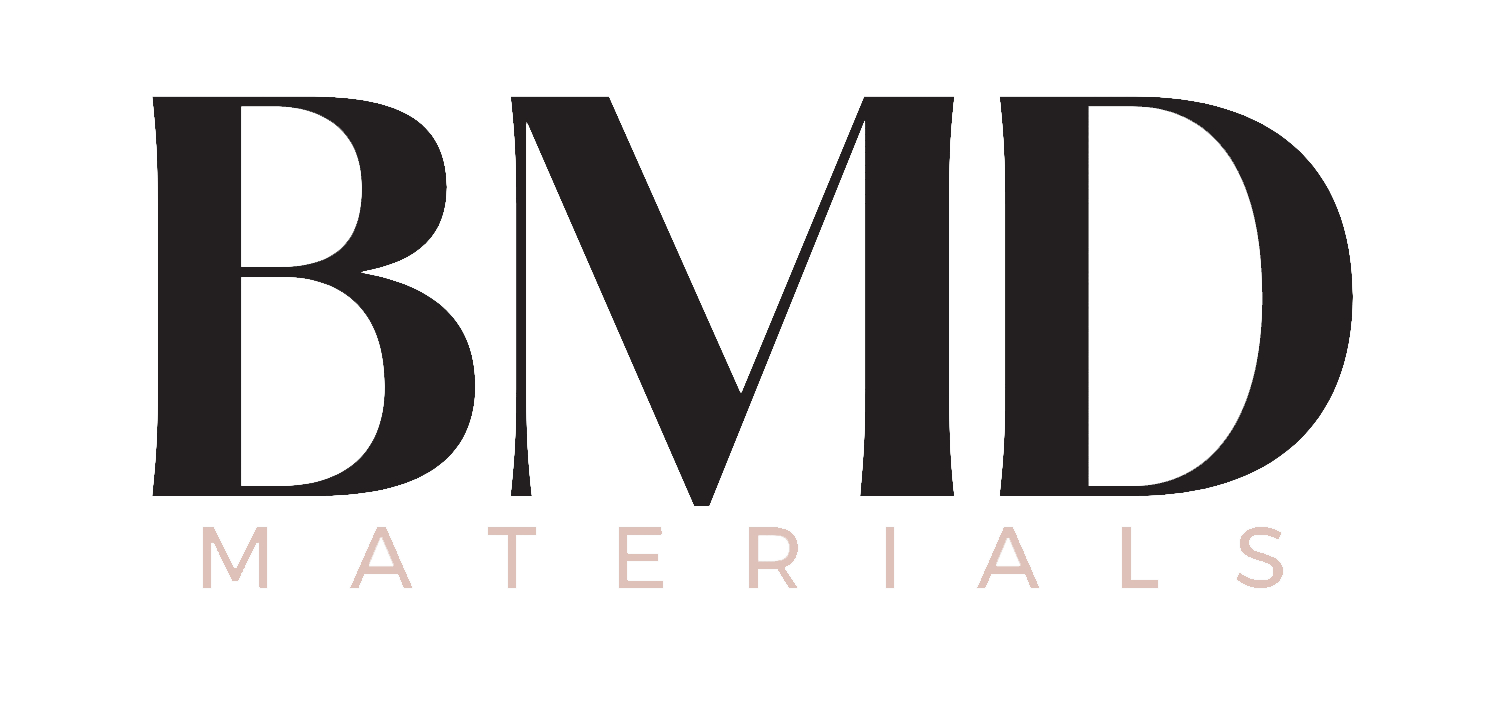Looking for an affordable alternative to hardwood or stone flooring?
Looking for an affordable alternative to hardwood or stone flooring? Want a high level of customization and design flexibility? Need your floor to be waterproof? Look no further: vinyl flooring meets all these needs and more. This material is usually fairly cheap and is not known to feel authentic to its style or design’s simulated material—putting in a vinyl floor likely won’t add value to your home.

Vinyl flooring is a type of multi-layered synthetic flooring. Made from materials like plastic, fiberglass and PVC, vinyl flooring typically comes in planks, tiles or sheets that can then be assembled. A core layer, potentially with an underlay or backing, makes up the bulk of the floor. Over this is an image layer, which can mimic a multitude of materials including wood and ceramic. A top wear layer of varying thickness protects the sublayers from damage.
The Pros of Vinyl Flooring
Resilient
Vinyl flooring is known for being resilient. This means that most vinyl flooring is water-resistant and very low maintenance, with long-lasting durability. If it has a wear layer, vinyl flooring will usually not stain and can survive plenty of wear and tear, which makes it a good option for any highly trafficked areas. Some brands manufacture 100% waterproof vinyl floors—excellent for bathrooms or mudrooms.
Comfortable
Compared to materials like hardwood or stone, vinyl flooring has a “softer” and more “padded” feeling underfoot, thanks to its layered composition. These layers also insulate and help the floor maintain a consistent temperature no matter the season. Vinyl can also have soundproofing qualities, which serve to reduce both noise and echo in any room.
Affordable and easy installation
Vinyl is quite affordable and has an uncomplicated installation process that can be DIYed fairly easily.
The Cons of Vinyl Flooring
Cannot be refinished
Since vinyl flooring consists of a single wear layer over the design layer, it cannot be refinished. Once the floor is damaged, the affected areas, or the entire floor, must be entirely replaced. This is especially true for sheet vinyl or low-quality vinyl.
Does not always add to resale value
Most of the time (though not always) vinyl floors do not have an impact on the resale value of a house or building. Low-quality vinyl floors, especially older floors, may even have a negative impact.
Not environmentally friendly
Manufacturing vinyl flooring requires the use of toxic chemicals, and after installation, vinyl floors have been known to emit VOCs (volatile organic compounds). Off-gassed VOCs can adversely affect health and an indoor environment, particularly without windows or ventilation, will lead to higher concentrations. If this is a concern for you, we recommend avoiding high-VOC vinyl flooring and choosing a low-VOC floor instead.
Cost
Vinyl can cost anywhere from $1.50 per square foot for a sheet to $6.00 per square foot for luxury planks or tiles. A good range to ballpark for quality vinyl would be between $3.00 to $5.00. As with most types of flooring, you will pay more for a high-quality and customized floor. In some cases, high-quality vinyl can approach the cost of inexpensive hardwood, so be sure to compare and contrast between the two before making a final decision.
Maintenance and Care
Vinyl flooring—particularly high-quality vinyl flooring—is easy to maintain. Depending on your wear layer, your floor has likely received a surface treatment (specific to the manufacturer) that helps make it resistant to scratches and stains. Vacuuming, sweeping and using a damp mop are typically sufficient measures to keep your floor clean and you can easily DIY a gentle cleaning solution instead of purchasing one. Standard floor care practices also apply: clean up spills and messes, use rugs and mats, put protective pads on furniture legs and so on.
On the other hand, because of the wear layer, vinyl floors should not be waxed, varnished or steam-cleaned. Abrasive, oily and acidic products should also be avoided. Never apply any direct heat to your vinyl floor: this can cause your floor to discolor and even melt.
Design Options
Vinyl floors are very versatile when it comes to design options. It is possible to buy vinyl that looks like other flooring material, including wood, brick and stone. Further customization, once you choose a material, is also possible. Vinyl flooring offers a wide range of textures, styles and colors. If you are opting for a non-traditional look, bright, muted and metallic patterns are available in a multitude of geometric, floral or even Art Deco designs.
Stand-alone images, such as a giant flower or animal, can also be done with vinyl flooring. As usual, expect to pay more for customized designs and patterns, and do your usual checks for quality assurance—some custom vinyl flooring companies may offer a flashy product and not much else.
Installation
The good news is that you can easily install vinyl flooring yourself—and this could mean a flooring project becomes 50% less expensive than it would be if you were hiring a professional. Vinyl planks and tiles can typically be installed as a floating floor, with the pieces locking together; for other types, you may need to glue the floor into place or use a peel-and-stick method.
Depending on your experience and preparation needs, expect a simple flooring project for a single room to take one to two days. Make sure to follow any installation instructions included with your purchased vinyl flooring.
Lifespan
There is a wide range for how long vinyl flooring lasts: anywhere from five to 25 years. This huge variation is a result of the initial installation process, quality of the flooring, thickness of the wear layer and maintenance.
It also reflects the fact that once a vinyl floor is damaged, it must be replaced instead of refinished—and depending on the amount of damage and type of vinyl you purchased, this may mean anything from the entire floor (sheet vinyl) to the affected tile or plank. In a well-travelled home, expect to be on the much lower end of this range.
Bottom Line
If you are looking for a waterproof and durable flooring that is comfortable to walk on, easy to install and requires little maintenance, then vinyl flooring may be for you. However, vinyl flooring is not the longest-lasting, best-looking, best-feeling nor most eco-friendly option out there, so if any of these points are important to you, consider looking elsewhere.
Advice
If you are looking for an expert in the Winnipeg or Manitoba area and would like BMD Materials to help you make selections and price various options for you please give us a call today!
